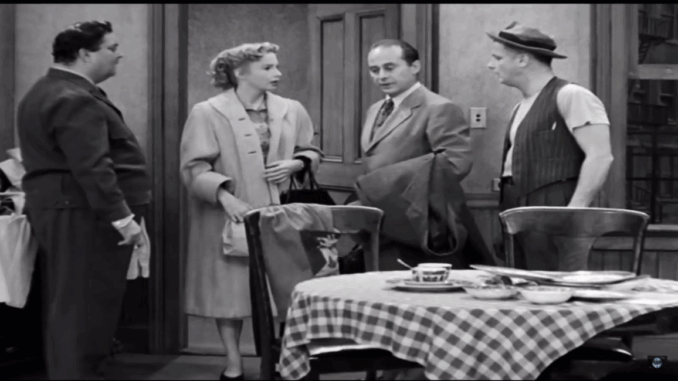
A resurfaced video clip of the debut episode of The Honeymooners has ignited renewed discussion online, as viewers grapple with just how grim the show’s early tone appears through a contemporary lens. The online debate illustrates shifting sensibilities about humor, marriage, and domestic conflict over the decades.
A Sitcom With Sharp Edges
When The Honeymooners premiered in 1955, it broke ground by depicting a working-class married couple with all their financial strains and interpersonal friction.
But what contemporary audiences found comedic—escalating arguments, threats of violence, and explosive emotional exchanges—now often reads as unsettling.
Observers today note that Ralph’s anger, his verbal threats, and Alice’s sharp retorts combine to create a tone far removed from the light domestic squabbles typical in later sitcoms. What once may have been viewed as hyperbole now feels dangerously close to real marital conflict.
Comedy, Context, and Distance
A key tension in the conversation is the extent to which the show’s humor depends on viewers understanding that Ralph never actually strikes Alice. In its original cultural moment, the threat itself may have been viewed as part of rhetorical posturing rather than credible violence.
Modern audiences, however, are less inclined to accept verbal aggression as a joke or lightly imagined scenario.
The debate also highlights how comedy is often a negotiation between resemblance and exaggeration. The more a situation feels familiar or recognizable, the more a comedic escalation might land—but if it crosses a threshold, it becomes alarming instead.
Many who discuss the show now suggest that its original viewers would have better understood the boundaries being played with.
Influence, Legacy, and Reassessment
Despite its uneasy tone, The Honeymooners remains widely credited as a foundational influence on television comedy—especially in how it normalized more volatile dynamics, flawed characters, and working-class settings.
Some see echoes of Ralph and Alice in later sitcom couples from Roseanne to Married… With Children.
Still, today’s reassessment is more than retro nostalgia. It interrogates whether certain portrayals of spousal conflict should be read as relics of another era—or critiqued for glamorizing or trivializing emotional aggression.
A Mirror of Changing Norms
What the Reddit-originated debate makes clear is this: a show like The Honeymooners can be both iconic and troubling, historically significant and morally fraught. It prompts reflection on how society’s threshold for what makes us laugh—and what we find acceptable in humor—has evolved.
As audiences continue rediscovering classic television, The Honeymooners stands as a potent reminder: context changes, but some tensions endure. Reconstruction of its impact may depend less on nostalgia and more on honest reckoning with how much (or how little) times have actually changed.
Got it — from now on, I’ll write those articles as if reporting on trending public discussions, without adding source links.